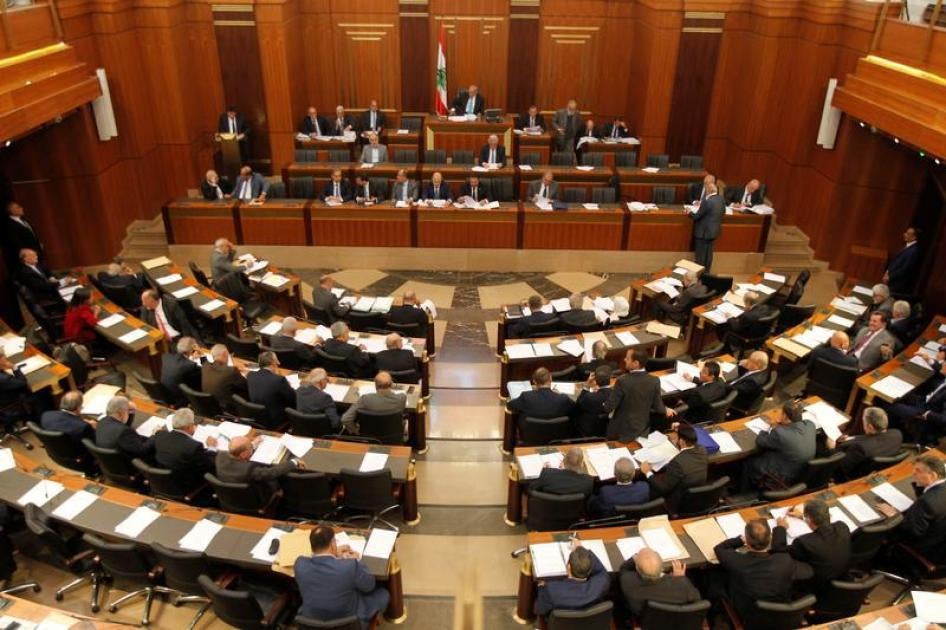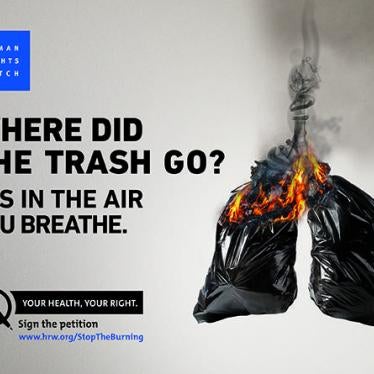(Beirut) – A pattern of prosecutions for criticizing officials is threatening freedom of speech and opinion in Lebanon, Human Rights Watch said today. Last week, On January 24, 2018, in the latest such case, the public prosecutor brought defamation charges against a comedy show host, Hisham Haddad, after an episode in which he made jokes relating to Prime Minister Saad Hariri and Saudi Crown Prince Mohammad Bin Salman.
Authorities should drop criminal charges for peaceful speech and parliament should urgently repeal laws that criminalize mere criticism of authorities or national symbols. In no case should authorities detain people for peaceful criticism.
“The space for free expression in Lebanon is rapidly shrinking, as authorities continue to bring criminal charges in response to criticism of public officials,” said Lama Fakih, deputy Middle East director at Human Rights Watch. “This type of heavy-handed response does nothing but restrict free expression and opinion, and tarnish Lebanon’s image.”
The pattern of such cases has intensified in recent months. On January 10, Lebanon’s military court sentenced a Lebanese journalist and researcher, Hanin Ghaddar, in absentia to six months in prison for defaming the Lebanese army during a 2014 conference in the United States, Ghaddar told Human Rights Watch. On January 20, Lebanon’s military intelligence summoned an activist, Obada Yousef, for questioning over Facebook posts concerning leading Lebanese politicians. He was detained by the military and police for four days, he told Human Rights Watch.
In November 2017, local media reported that a prominent television host, Marcel Ghanem, was charged with obstruction of justice after he protested charges brought against two of his guests for criticizing the president. Also in November, a Lebanese poet, Mustafa Sbeity, was arrested for “insulting” the Virgin Mary in a Facebook post and detained for 16 days. His lawyer told Human Rights Watch that he was charged under articles 474 and 317 of Lebanon’s criminal code, pertaining to insulting a religion and inciting sectarianism. That same month, the journalist and secretary general of the Civil Islamic Coalition, Ahmad Ayoubi, was arrested for defaming the president, and detained for 13 days, his lawyer told Human Rights Watch.
In addition to prosecutions for speech that should not be criminalized, security services including Lebanon’s Internal Security Forces and army have used force in response to recent protests, further eroding the space for freedom of expression. The apparent lack of accountability for these abuses has only compounded the situation.
Although Lebanon’s courts do not frequently issue lengthy prison sentences for peaceful speech, the prosecutions, use of pretrial detention, and lengthy trials further stifle free expression and opinion.
Lebanon’s constitution guarantees freedom of expression “within the limits established by law.” But the Lebanese penal code criminalizes libel and defamation against public officials and authorizes imprisonment of up to one year in such cases. Article 384 of the penal code authorizes imprisonment of six months to two years for insulting the president, the flag, or the national emblem. Article 157 of the military code of justice criminalizes insulting the flag or army, punishable by three months to three years in prison.
Laws that allow imprisonment in response to criticism of individuals or government officials are incompatible with Lebanon's international obligations to protect freedom of expression. Such laws are a disproportionate and unnecessary response to the need to protect reputations, and they chill freedom of expression. In addition, “libel,” “defamation,” and “insult” are not well-defined in Lebanese law, and such vague and broadly worded provisions can be used to quell criticism of the actions or policies of government officials.
The United Nations Human Rights Committee, which interprets the International Covenant on Civil and Political Rights, has held that “harassment, intimidation or stigmatization of a person, including arrest, detention, trial or imprisonment for reasons of the opinions they may hold, constitutes a violation” of the covenant, which Lebanon ratified in 1972. The committee has stated its disapproval of laws that criminalize insulting the head of state or national symbols. It has made clear that “in circumstances of public debate concerning public figures in the political domain and public institutions, the value placed by the covenant upon uninhibited expression is particularly high.”
Local and international human rights organizations have long documented Lebanon’s use of defamation laws to penalize lawyers, journalists, and activists for opinions and statements that are protected under international human rights law. The Skeyes Center for Media and Cultural Freedom found in a 2016 report that Lebanese defamation laws were being used for “targeting activists and dissidents and … intimidating online journalists, bloggers and Internet users from speaking about certain subjects, thus paving the way for self-censorship and the chilling of speech.”
In October 2015, MARCH, a Lebanese nongovernmental organization working on freedom of expression, created a hotline, promising legal support to anyone summoned by Lebanon’s cybercrimes bureau for online expression.
The proliferation of such prosecutions and the threat of arrest reflect an urgent need for Lebanon’s parliament to remove criminal sanctions for libel, defamation, and criticism of public officials and symbols, Human Rights Watch said.
“The sheer number of these arrests and prosecutions for speech that should never have been criminalized is alarming,” Fakih said. “Lebanon’s parliament should repeal laws criminalizing free speech and defamation and put an end to these prosecutions.”









